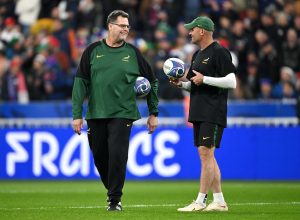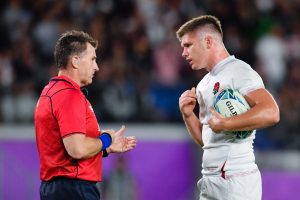The north has been warned: The South Africans are coming
Mark Keohane, writing for IOL Sport.
South Africans, get ready for a rugby future made for a greater viewing experience and one designed to ensure better player welfare. Get ready for South African rugby’s invasion of the northern hemisphere.
SA Rugby, already in the north through the Cheetahs and Southern Kings, will sooner rather than later have a greater presence through an expansion that is likely to include the bigger South African Super Rugby brands the Sharks, Bulls, Stormers and Lions.
The Covid-19 pandemic has forever altered world rugby’s landscape and forced the evolution into a revolution.
The north has been warned: The South Africans are coming, not as imports to the very best clubs in the United Kingdom and France, but as teams in an expanded Pro14 tournament.
New Zealand, bullish in going it alone and excluding South African teams from their preferred trans-Tasman Super Rugby proposal in 2021, may still regret getting what they wished for.
South African television viewership of Super Rugby is bigger than the combined totals of New Zealand, Australia, Argentina and Japan. The Broadcast deal appeal in any Super Rugby product has always been because of the number of eyeballs from within South Africa.
Super Rugby, from its launch in 1996, has always disadvantaged South African players and team prospects because of the imbalance in travelling. South African teams, traditionally always toured for longer and played more matches on tour than their tournament counterparts.
South African players always factored in a month away from home, with the potential of having to travel three time zones in the same week of a play-off match, travel back to South Africa and back again to New Zealand for a final.
The Sharks were an example of the ridiculous situation when they beat the Reds in Brisbane in a quarter-final, flew back to South Africa to play the Stormers in Cape Town in a semi-final and then flew immediately to New Zealand to play the Chiefs in Hamilton in a final.
The Chiefs won the final 36-6. It was no surprise given the Sharks players had flown across three time zones every week for three successive weeks.
Playing rugby in the northern hemisphere eradicates player fatigue, excessive travel and massive time zone differentials. Playing rugby in the northern hemisphere would be in the best interests of South Africa’s professional player base and it would also financially improve every single South African franchise.
The financial strength and pulling power in rugby is in the northern hemisphere.
Having the strongest South African rugby professional brands in an expanded Pro 14 will also be a sport broadcaster’s dream. The premium viewing sporting slots in the northern hemisphere are between 14.00 and 22.00. This window aligns perfectly with South African sport’s prime slots.
The time difference between New Zealand and South Africa means the early morning kick-offs, be it because of an afternoon match in New Zealand or one in South Africa, have minimal broadcast value. Viewer numbers are always at their lowest for these 5am starts. And they don’t improve significantly, when aired in the morning. The exceptions are a major play-off game.
England, France and South Africa are the big three when it comes to rugby broadcast viewership, which is why broadcasters in the northern hemisphere and tournament directors in the northern hemisphere would want the best South African teams to play in a refreshed and improved Pro Rugby competition.
Currently, the English Premiership and French Top 14 competitions are the strongest in the northern hemisphere. The Pro 14, previously Pro 12, has always been viewed as an afterthought and more inferior competition to what is on offer in England and France.
Having South Africa’s best four Super Rugby franchises compete against the four best Irish provinces and the best of Welsh, Scottish and Italian teams, makes for a substantially more attractive and lucrative competition.
It is one that would have increased viewership and vastly increased revenue.
Several reports in the media this past week also focused on the announcement that CVC Capital Partners has invested in the existing Pro 14 competition, with an obvious lure being the potential of a competition expansion to include South Africa’s finest teams.
CVC Capital Partners is a Luxembourg-based group, who two years ago, paid 400 million US dollars for 27 percent of the English Premiership and, according to several financial experts, CVC will fast track rugby’s move towards a private-equity future.
CVC, for 28 percent of Pro 14, paid 240 million dollars and, in a company statement, said: ‘CVC has a strong belief in the long-term potential of rugby for the fans, the players and the clubs, and what we can achieve in partnership with Pro 14.’
CVC believes in the future of professional rugby and London’s Financial Times reported that CVC is also wanting to buy into the Six Nations with a 600 million US dollar deal.
Rugby sites RugbyPass and Rugby 365 in the past few days reported extensively on the all-round gains for South African rugby in going north.
South African Rugby Union CE Jurie Roux was insistent when addressing the media earlier in the week that every opportunity to improve South Africa rugby was being explored, within the Sanzaar alliance and away from it.
‘We are still having discussions on what the year 2021 will look like, and what it will look like beyond 2021. Having said that, I would not be doing my job if I do not, along with my executive, look at a Plan B and Plan C, and to be fair I’ve been doing that for more than 12 months in terms of having additional options available for South African rugby,’ said Roux.
‘Those options differ and there is more than one on the table. We are a long way down the road of having different options that suit us better and will help us in building towards what we believe is our strategic framework and the direction that we need to go for within the next 10 years.’
Several prominent South African players, past and present, have echoed a view that going north would be the best decision for the future of South African rugby.
Former Springbok coach Nick Mallett supported any move north, primarily because of the advantages for South African players in terms of less travel and less fatigue, and also because of the commercial spin-offs in more appealing broadcast deals.
‘We must decide whether we are going to go north and play in the north and try and win competitions in Europe. We need to make sure that we are in a competition that suits South Africa. My feeling is that it probably suits us to go north,’ said Mallett on Bruce Whitfield’s ‘Think Big’ Webinar.







